For obvious reasons North Korea is not an ordinary country regarding tourism.
Access is only granted via a state guided tour and the presence of tourists is meticulously monitored by the government.
Contrary to common believe, however, the DPRK is a surprisingly safe country to visit.
IF you can follow certain rules that is.
Laws and rules will differ greatly from those of your home country, and it will be vital to follow them to avoid repercussions. While the North Korean authorities might simply put you under house arrest or on the next plane back to Beijing for most misdemeanours, tourists have been detained in the past and even sentenced for misconduct.
What might seem minor or even irrelevant, could have grave consequences in North Korea.
This post should not deter you from visiting North Korea though. It is meant as a code of conduct, a simple reminder that the only person responsible for your well-being inside the DPRK is you.
As long as you follow the rules listed below, you will have a wonderful time in the DPRK and return unscathed.
Table of Contents
- Never criticize the government or state ideology
- Never make fun of their leaders
- Treat the North Koreans with respect
- Listen to your guides
- Don’t wander off on your own
- Don’t leave the hotel at night
- Don’t take photos of the military/people doing hard labour
- Don’t take pictures in places where it is prohibited
- Don’t bring prohibited items into the DPRK
- Don’t smuggle anything out
NEVER CRITICIZE THE GOVERNMENT OR STATE IDEOLOGY
Although a democracy by name (Democratic People’s Republic of Korea, DPRK), North Korea is lightyears away from being one.
Since the Korean War in the 1950s, the country has been ruled with an iron fist by a single party, the Worker’s Party of Korea, while the presidency has been inherited by the infamous Kim family.
Following its emancipation from the USSR and China in the 70s, the nation’s founder Kim Il-sung decreed Juche to be the new state ideology. Leaning on Marxist-Leninist ideas but distinctively Korean in its core, the DPRK was therefore revamped and ideologically readjusted to fit the new narrative. Based on a set of principles, true socialism ought to be achieved by emphasizing self-reliance regarding all matters of the state.
Today, it remains the undisputed driving force behind the countries political decisions and shapes all aspects of North Korean society.
It doesn’t surprise then that the authoritative leadership of North Korea does not tolerate any sort of criticism towards the ruling party or Juche, as this would imply a direct attack on the country’s very foundation, and perpetrators are severely punished.
Freedom of speech (at least its Western understanding) does not exist in the DPRK, hence it is strongly advised to hold back on your opinion while inside the country.
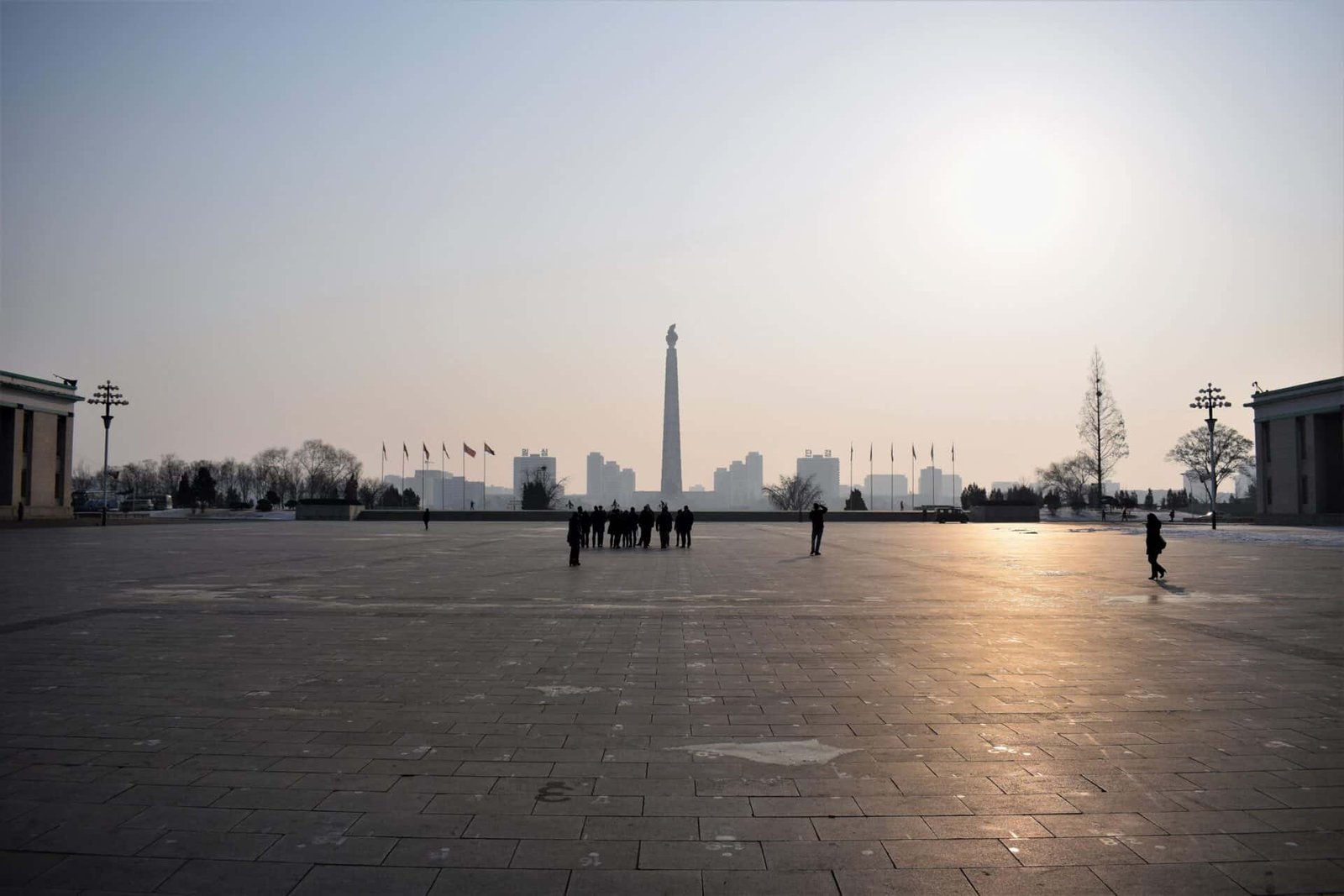
NEVER MAKE FUN OF THEIR CURRENT AND PAST LEADERS
This might be the most important rule on the list.
Since the country’s foundation, a massive personality cult has been established around the leading members of the mythologized Kim family, former presidents Kim Il-sung and Kim Jong-il, as well as Kim Il-sung’s first wife Kim Jong-suk.
Revered as the trinity of the “Three Generals” (father, mother, son), they enjoy a godlike status in North Korean society, and countless statues and portraits have been erected in their honour throughout the country. North Koreans flock to places of pilgrimage, such as Mansudae Grand Monument, in the thousands, to worship their idols and show their allegiance to the dynasty.
It is not uncommon to see people even get off their bike, to walk past statues or portraits instead of riding (whether this is mandatory or not, I don’t know).
To thwart any opposition, the ruling party exercises an extreme form of lèse majesté, severely punishing any critique aimed at the Kim family (death penalty in the worst case).
It is rumoured that even folding a bank note or newspaper with the face of Kim Jong-un (current president) is seen as an affront and might end badly for the negligent perpetrator.
Only a fool would speak ill of the Kim family while inside the DPRK.
This is not a trivial offence and will be persecuted.
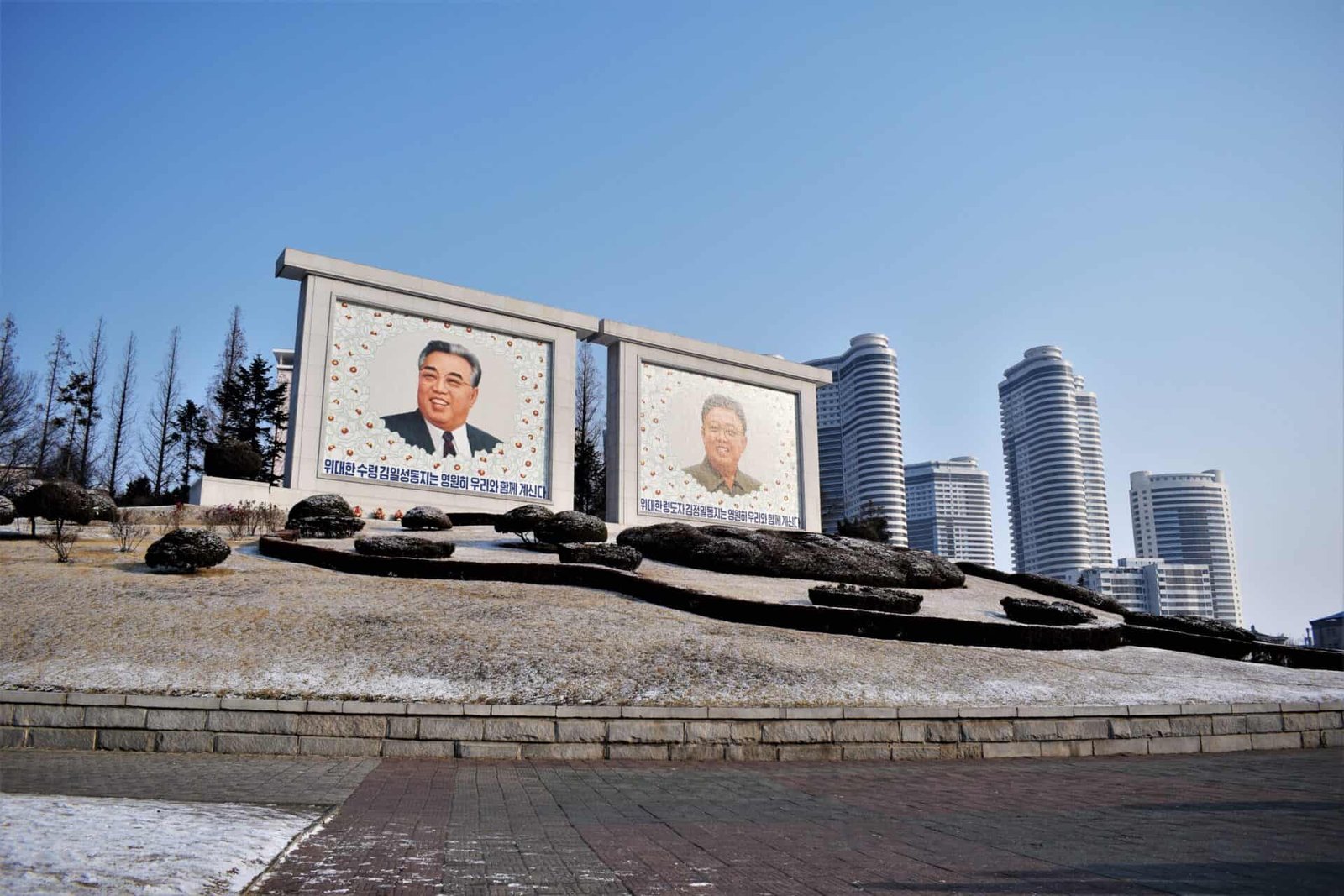
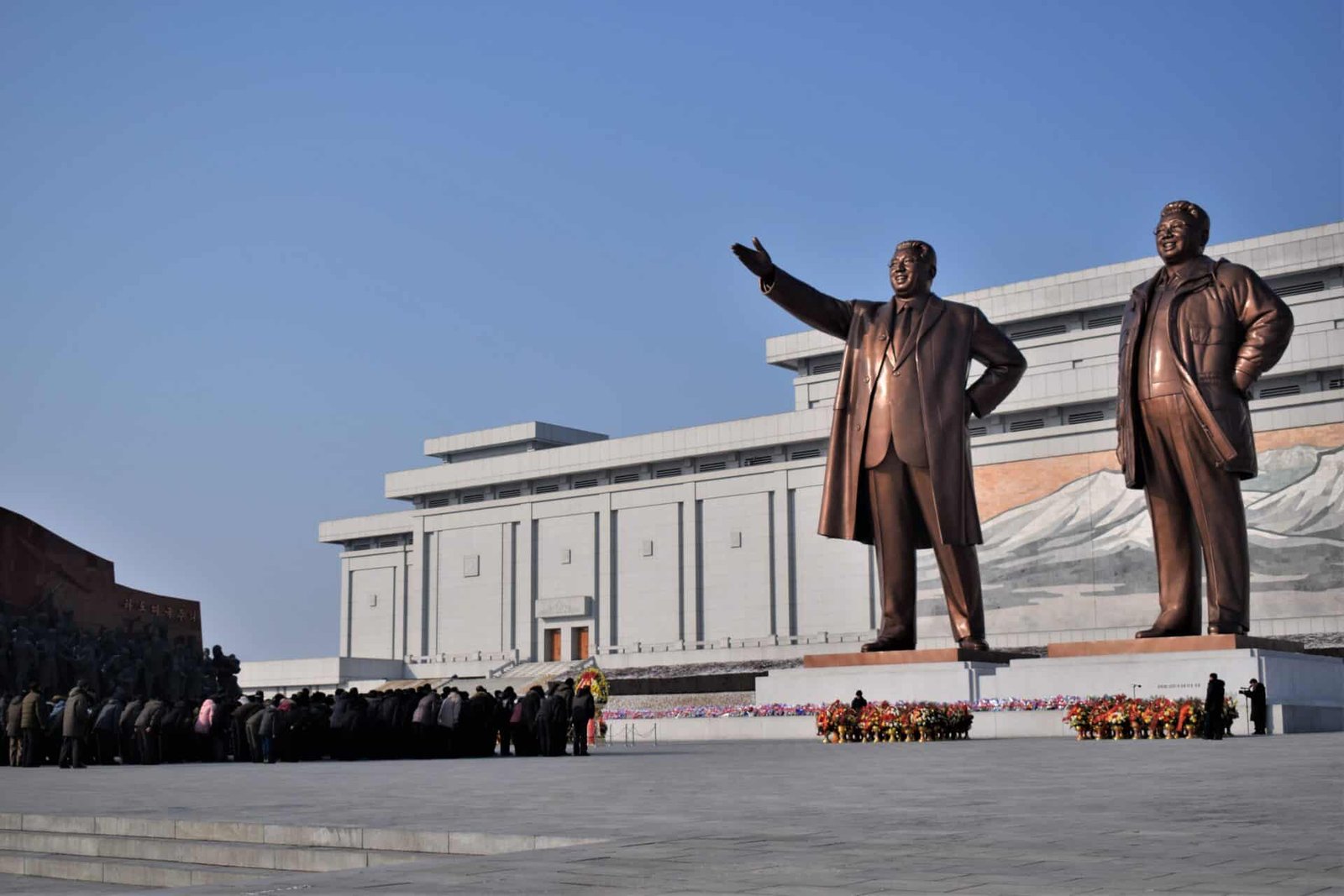
TREAT THE NORTH KOREANS AND THEIR BELIEVES WITH RESPECT
North Koreans are born into a system where opposition does not exist.
From an early childhood on, they get indoctrinated in the ways of Juche, the state ideology, all people living in the DPRK are subjected to. They are entirely cut off from the rest of the world and just a small minority will ever leave the country or get in contact with foreigners and different ideas.
Therefore, they are very proud and protective of their believes and do not take it lightly should those believes be disrespected.
While you should always be respectful towards (most) other believes when travelling, it is even more imperative in North Korea. Disrespecting them might not only have consequences for you personally but may affect future tours as well (as they might not be able to do certain things anymore).
For example, do not strike any funny photo poses in front of images of their leaders, and bow down when asked to.
Besides, it is not the North Koreans’ fault to be in that position, always keep that in mind.
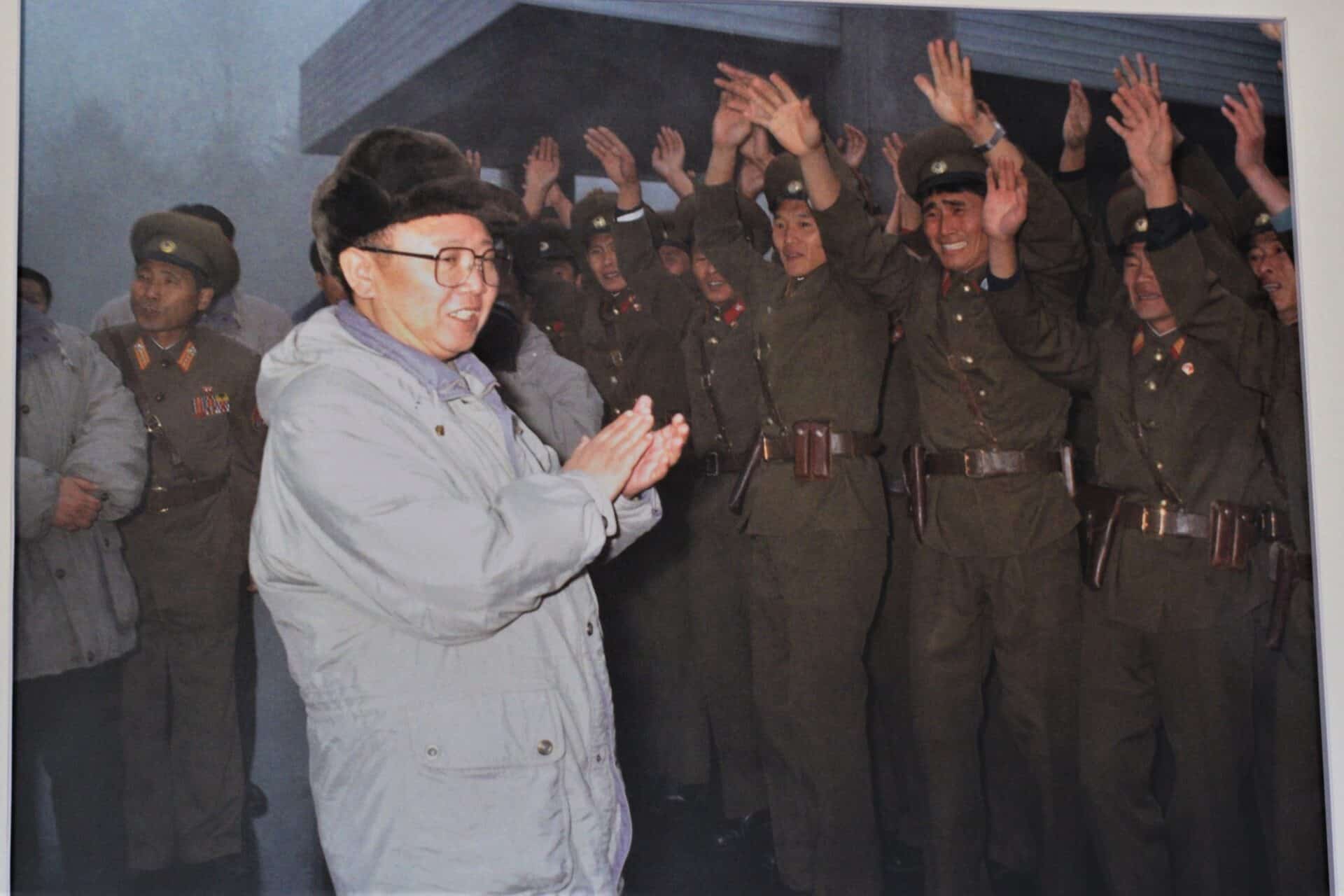
ALWAYS LISTEN TO YOUR GUIDES
Although you will receive a thorough briefing before the trip, chances are that rules might be adjusted during your stay.
Normally the only restrictions on photography are military personnel and people doing hard labour, however, you will most likely visit places where those rules do not apply and photography is banned altogether, for example.
If that is the case, changes will be announced beforehand though, so always listen to your guides attentively.
Should you, at any point of the trip, feel uncertain whether you are permitted to do something or not, make sure to consult your guides for clarification.
DON'T WANDER OFF ON YOUR OWN
North Korea is not a country for the independent traveller.
During your trip, you will always be accompanied by your guides (except for the hotel) and won’t be able to discover this fascinating nation on your own.
That doesn’t mean you have to hold hands when exploring North Korea, however, it will depend on your Korean guides how much “freedom” they give you. From my experience, the guides will be a bit more rigid at first and more willing to loosen the grip, if the group adheres to the rules.
Even if you have the urge to wander off on your own, be aware that you are not just jeopardizing your own trip, but that your actions might affect the rest of the group, as well, especially your Korean guides, who will be held accountable for your wrongdoings (they might even lose their job).
So, don’t be that guy, who ruins it for everyone else.
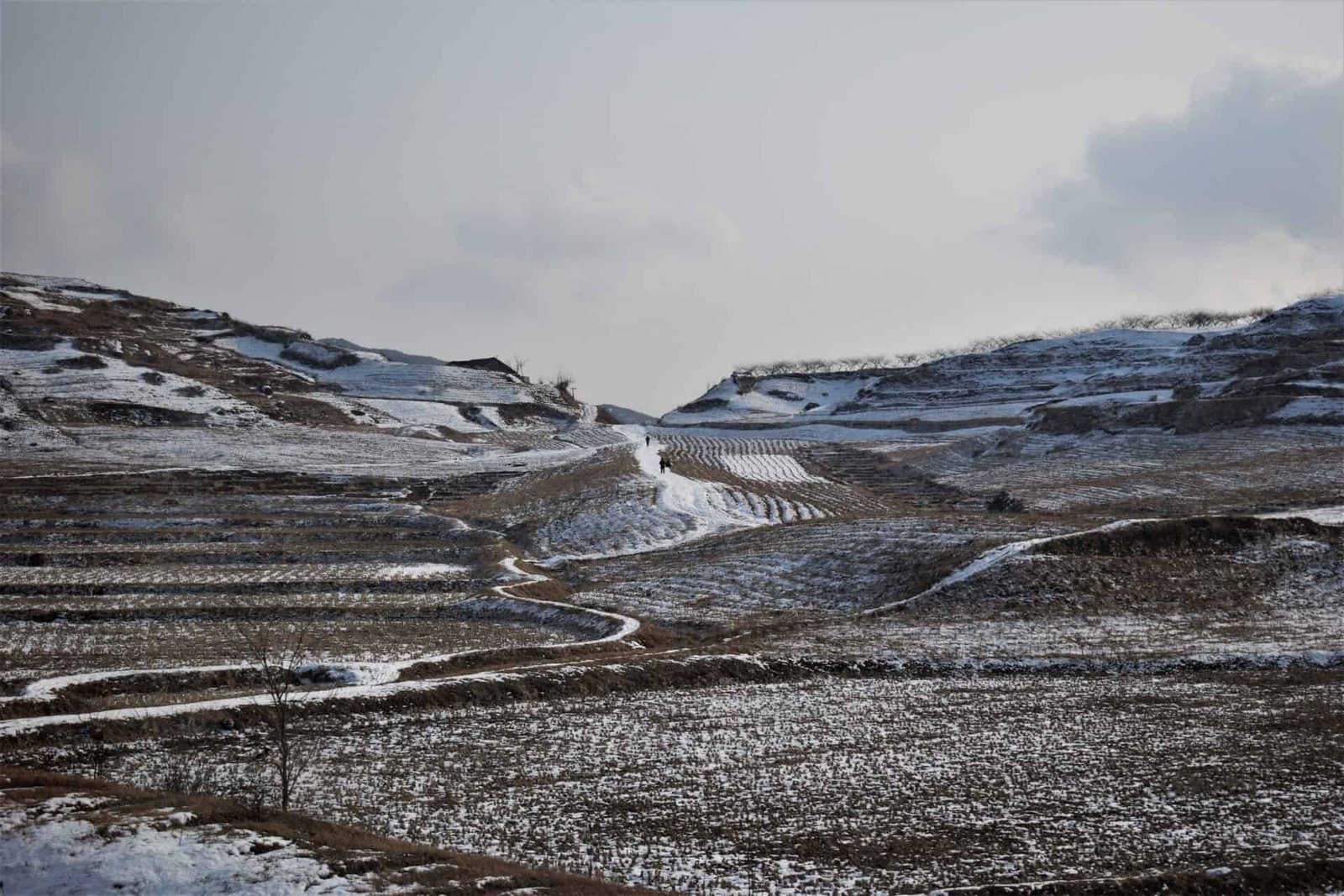
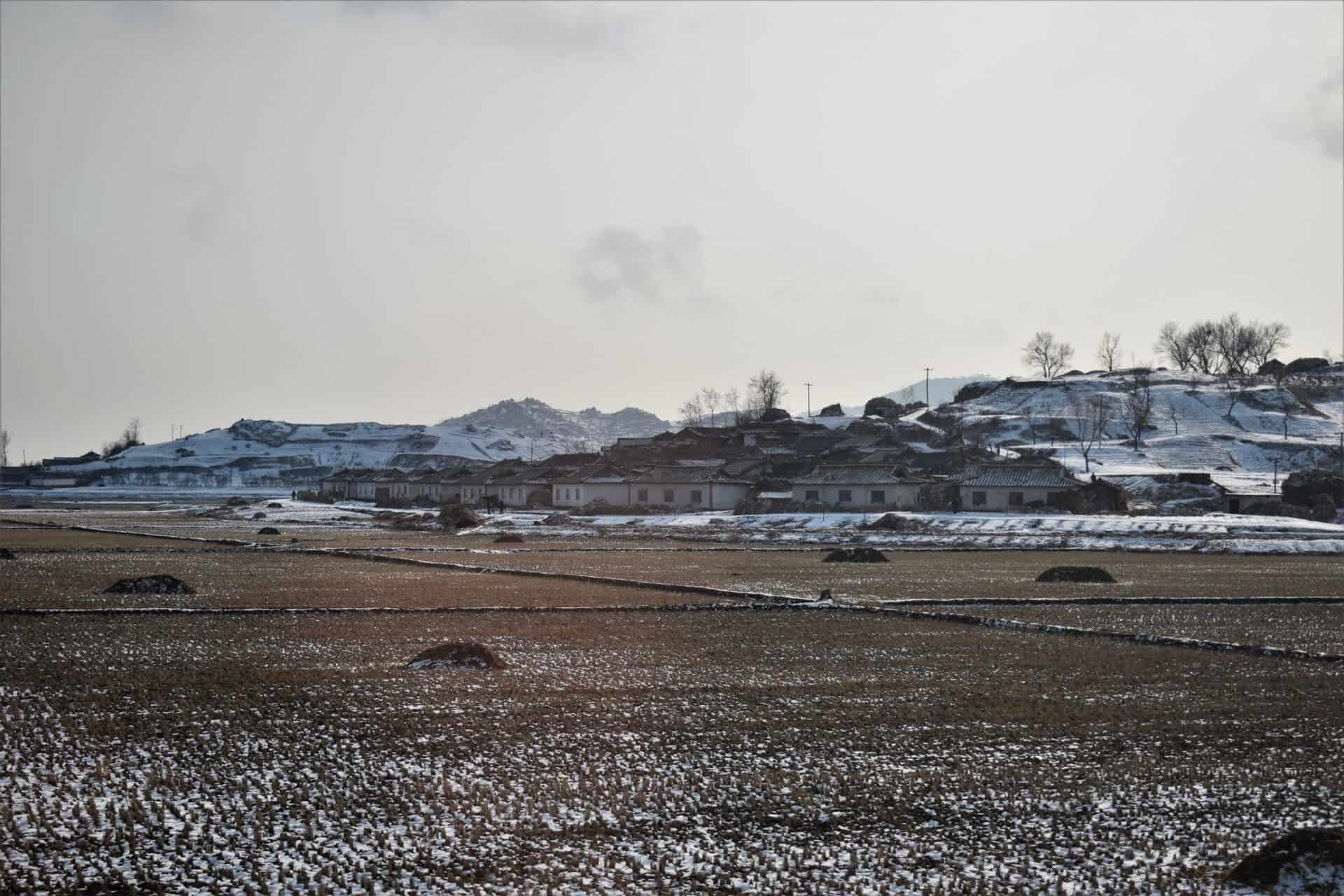
DON'T LEAVE THE HOTEL AT NIGHT OR GO PLACES YOU ARE NOT ALLOWED TO
While in theory, your hotel is the only place where you will be able to roam freely, in reality it will be more of a glorified, yet amenable, confinement.
Certain floors will be off limit, as will be the outdoor areas, presumably to pre-emptively prevent adventurous foreigners from wandering off on their own. If I remember correctly, going for a smoke in front of the main entrance was allowed though.
However, leaving the hotel after nightfall was definitely off limits.
We were told that a tourist once snuck out, before being gathered up by North Korean police in the middle of Pyongyang. He was subsequently put under house arrest and his trip cut short.
I know, it might seem tempting to catch a unique and unfiltered glance of the DPRK, however, the consequences won’t be worth it.
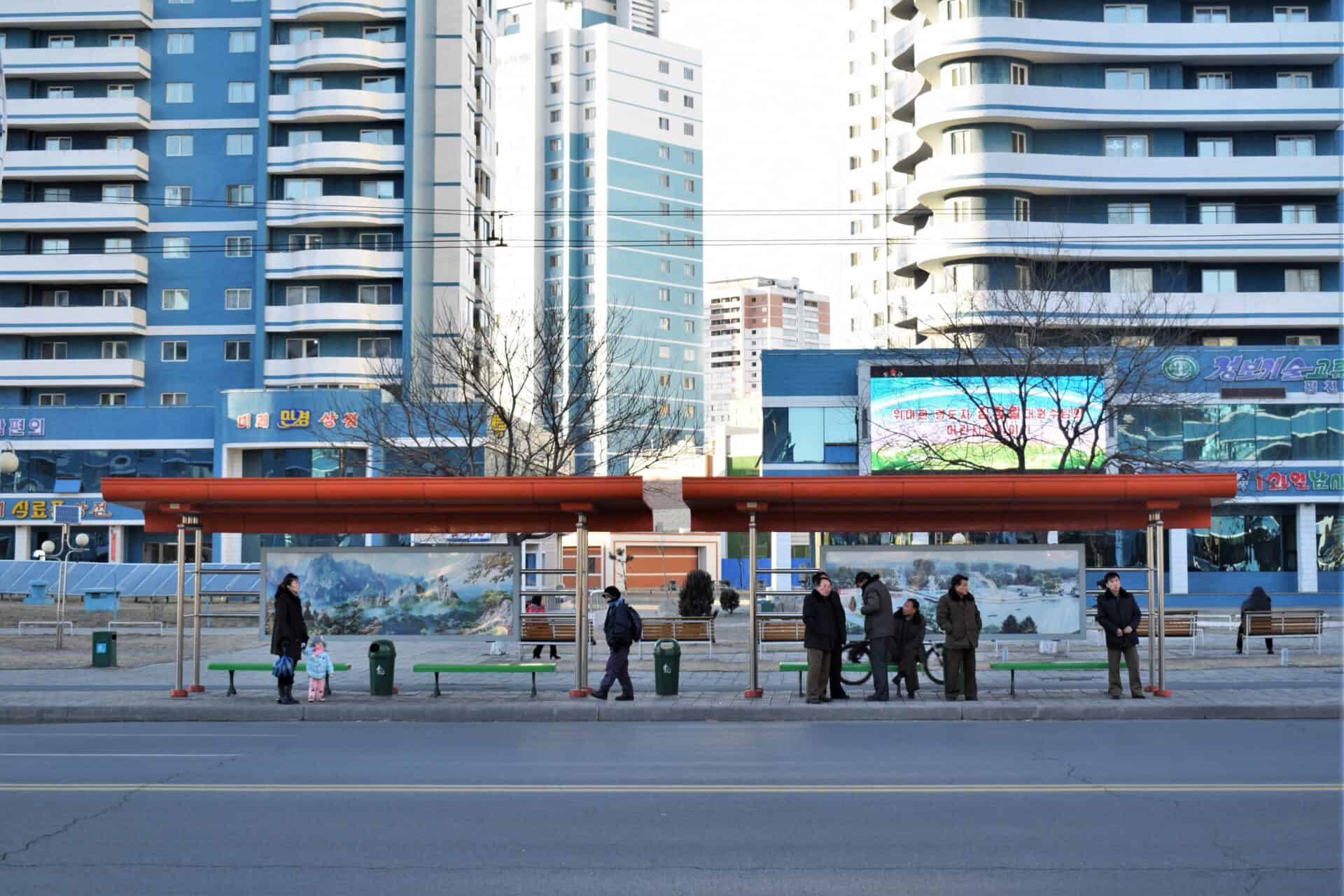
DON'T TAKE PHOTOS OF THE MILITARY AND PEOPLE DOING HARD LABOUR
Rules for photography in North Korea are less strict than you might assume.
In general, you will be able to take pictures of everything you see during your trip, with two exemptions:
- military personnel (not sure about police though)
- people doing hard labour (construction work, etc.)
While the first isn’t unique to the DPRK (many countries forbid you from taking photos of their military), the second one is a little bit more peculiar.
According to our Korean guides, North Koreans don’t like to be photographed when doing hard labour, hence the government outlawed it altogether. Whether this is the case, or whether there is another reason behind it, we’ll probably never know.
In any way, upon leaving the country border officials will check cameras for “forbidden pictures”. This might happen on a sample basis, however (mine wasn’t checked).
While a few photos will most likely just be deleted by the officials, I wouldn’t show up with memory cards full of unauthorized material.
After all, you don’t want to render yourself suspicious to the North Korean authorities, do you?

DON'T TAKE PICTURES IN PLACES WHERE IT IS PROHIBITED
While it won’t be an issue most of the time, photography will unfortunately be prohibited in certain places you visit. If that is the case, your guides will point it out to you in advance.
For my group these were the Victorious War Museum and the Kwangbok Department Store.
Although, you will be able to take lovely pictures of all the captured US military equipment positioned in front of the museum, photography inside is strictly forbidden, which is a shame given the propagandistic opulence displayed there (one of the highlights of the tour!).
The same restrictions apply to the Kwangbok Department Store. Even today, I do not understand why we couldn’t take pictures in a convenience store (Western-style mind you) but doing so would apparently pose to much of a risk for the North Korean leadership.
Maybe they fear the wrath of a certain Swedish furniture manufacturer and want to keep the presence of a fake store hidden.
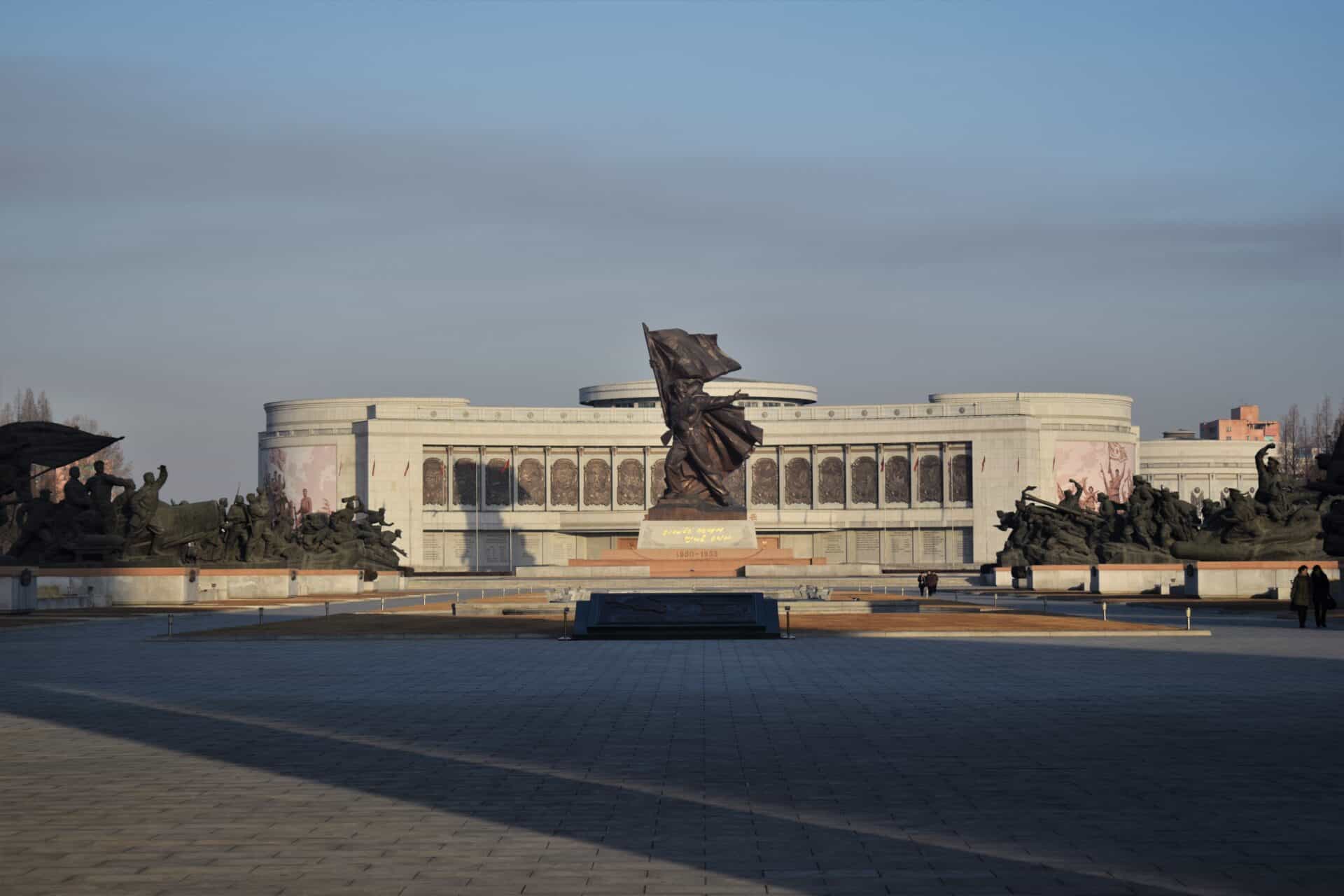
DON'T BRING PROHIBITED ITEMS INTO THE COUNTRY
Before you enter North Korea, border officials will check your luggage for certain items that are prohibited inside the DPRK.
These include:
- Religious texts
- Books about North Korea
- Camera lenses with a certain focal length
- Pornography
- South Korean propaganda (pretty much anything South Korean)
As you can imagine, trying to smuggle them into the country is not a trivial offence (especially Korean items) and might end your trip before it has even started. You will get a detailed list of prohibited items before going to the DPRK and will discuss them again during the pre-trip meeting.
Although enticing, I wouldnt blast your favourite K-Pop jingles in your hotel room if I were you.
DON'T SMUGGLE ANYTHING OUT OF THE DPRK
It may not be wise trying to smuggle anything into the country, but it might actually prove fatal trying to smuggle something out of the DPRK.
In 2016, the uncovered theft of a propaganda banner by Otto Warmbier was declared a “hostile activity” by the North Korean authorities and Warmbier sentenced to 15 years of hard labour in a North Korean prison camp. Due to unresolved circumstances, he fell into a coma and ultimately died after being repatriated to US.
Although this case demonstrates the absolute worst-case scenario, it should remind travellers about the unpredictability and caprice of the North Korean judicial system, and the importance of a proper conduct while visiting North Korea.
